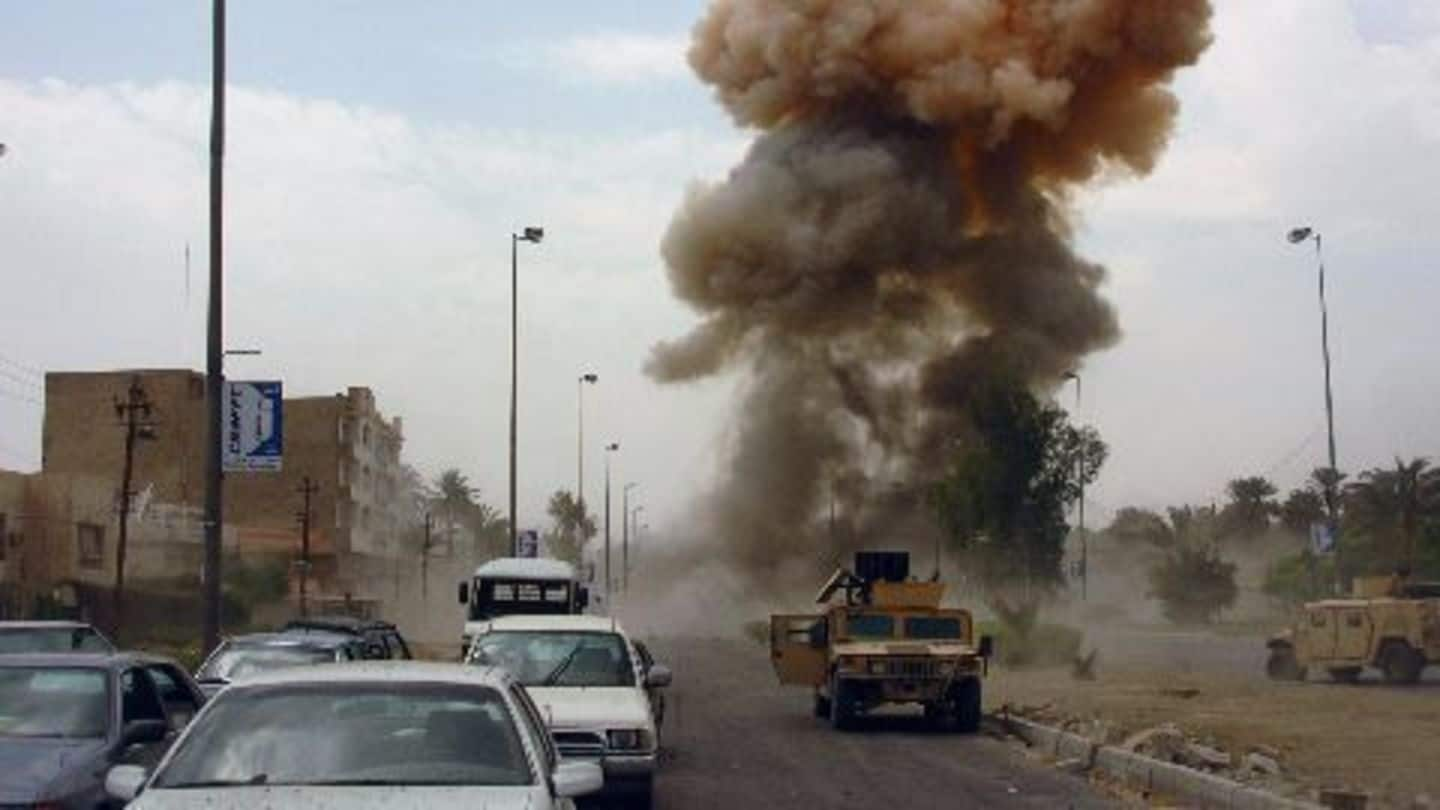
Car bomb kills 28, injures 61 in Ankara
What's the story
28 people were killed and dozens wounded in Turkey's capital Ankara on Wednesday when a car laden with explosives detonated near the armed forces' headquarters and Turkish Parliament.
Security forces carried out a controlled explosion on a suspicious package after the blast.
This is the fourth bombing in less than a year in Turkey.
No group has so far claimed responsibility for the attack.
Recent Attacks
Recent attacks in Turkey
Turkey has faced several attacks since the war against the IS in Syria.
In July'15, 30 people were killed in a suicide bombing in the Kurdish town, Suruc.
In Oct'15, more than 100 people are killed in a double-suicide bombing at a Kurdish peace rally in Ankara
In Jan'16, 10 people, mostly German tourists, were killed in a suspected IS suicide bombing in Istanbul.
Details
The details of the bomb attack in Ankara
The attack targeted a shuttle bus carrying military personnel, and there were several other military vehicles nearby waiting at the traffic signal.
Most of the casualties are believed to be soldiers; however, several civilians were killed as well.
Security sources suspect that either militants affiliated with the Islamic State (IS) or militants from the banned Kurdistan Workers Party (PKK) were behind the attack.
Information
A Syrian backlash?
The blast in Ankara comes as Turkey steps up its involvement in the Syrian conflict. Turkey has been bombing Kurdish militia in Syria who are supported by Assad and Russia. It also allowed the anti-IS coalition to use its air bases for strikes in Syria.
Reactions
How did officials react to the blast?
In a statement released after the attack, President Recep Tayyip Erdogan said Turkey was more determined than ever to use "its right to self-defence."
Mark Toner from the US State Department said "We reaffirm our partnership with our Nato ally Turkey in combating the shared threat of terrorism."
Prime Minister Ahmet Davutoglu and President Erdogan canceled scheduled foreign trips in light of this attack.
Information
Gag order on Turkish media
Turkey placed a gag order on all Turkish media outlets, prohibiting them from broadcasting images of the explosions and banned reporting on any details of the investigation. Turkey has imposed similar bans after previous attacks.